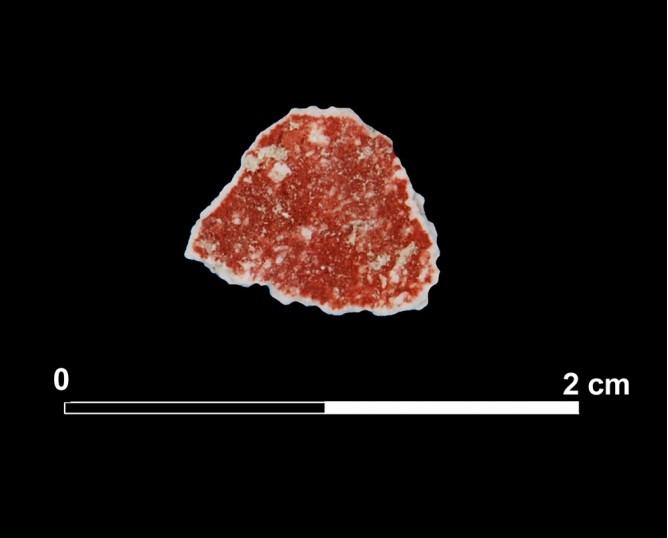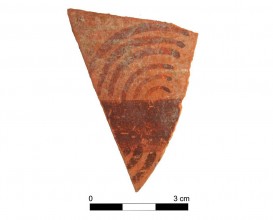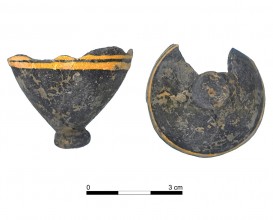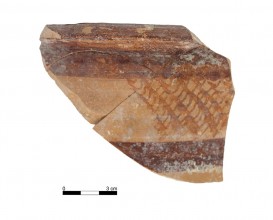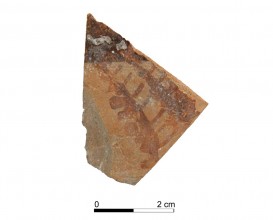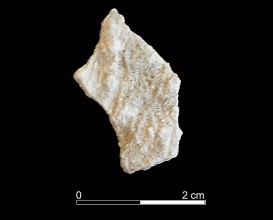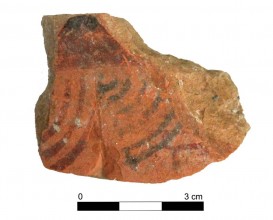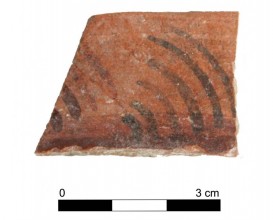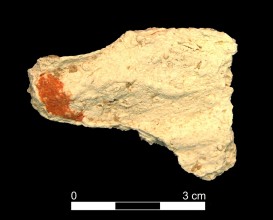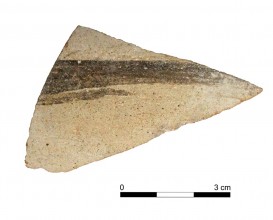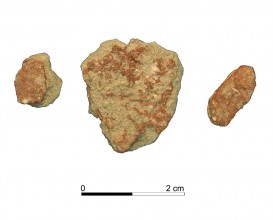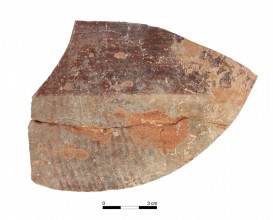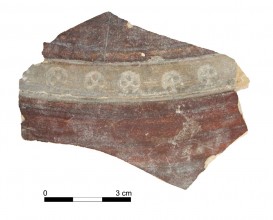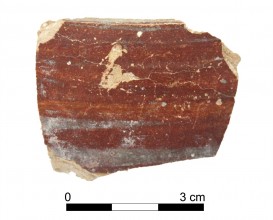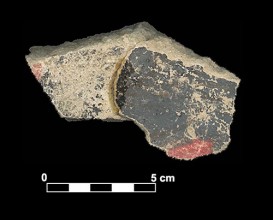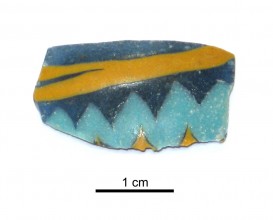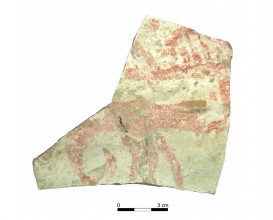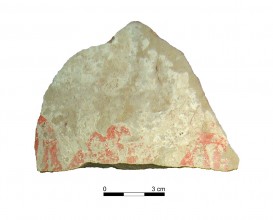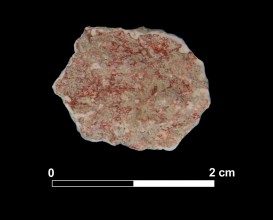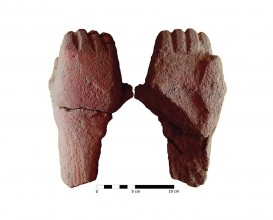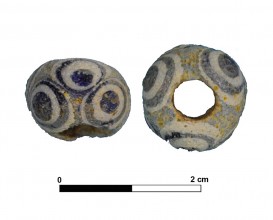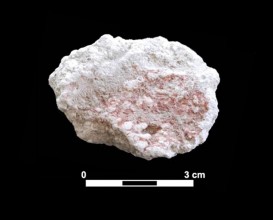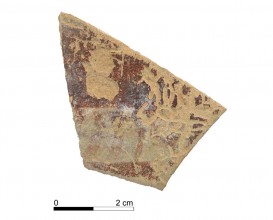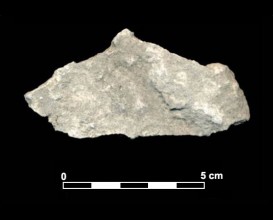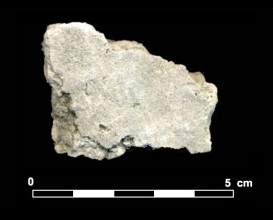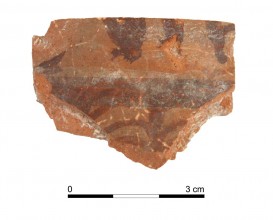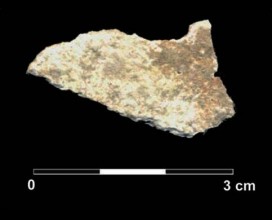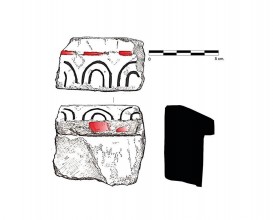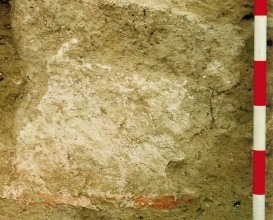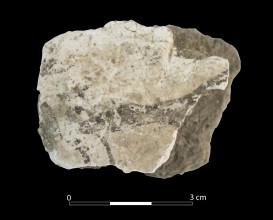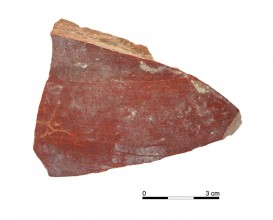Covering 50004. Burial mound 50. Cemetery of Tútugi.
Dimensions
: 1 Centimeters
: 1 Centimeters
Materials
covering
Temporal
: Iberian, Iberians
: 3rd ct. BC
Spatial
: Cemetery of Tutugi
: Galera, Granada, Spain
: WGS84
Copyrights
Creative Commons - Attribution, Non-Commercial, No Derivatives (BY-NC-ND)
References
Parras, D., Montejo, M., Ramos, N. Y Sánchez, A. (2006): "Analysis of pigments and coverings by X-ray diffraction (XRD) and micro Raman spectroscopy (MRS) in the cemetery of Tutugi (Galera, Granada, Spain) and the settlement convento 2 (Montemayor, Cordoba, Spain)". Spectrochimica Acta Part A 64: 1133–1141.
Rodríguez Ariza, Mª O. (2014): La necrópolis ibérica de Tútugi (2000-2012). CAAItextos. Universidad de Jaén, Jaén.
Sánchez, A.; Parras, D.; Tuñón, J. A. Y Ramos, N. (2014): “Análisis de recubrimientos y pigmentos en la necrópolis ibérica de Tútugi (Galera, Granada)”, Mª O. Rodríguez (ed): La necrópolis ibérica de Tútugi (2000-2012). Universidad de Jaén e Instituto Universitario de Investigación en Arqueología Ibérica, Jaén. 349-368.
Digital Resources
-
 Instituto Universitario de Investigación en Arqueología Ibérica
Instituto Universitario de Investigación en Arqueología Ibérica Creative Commons - Attribution, Non-Commercial, No Derivatives (BY-NC-ND)
Arquiberlab
http://creativecommons.org/licenses/by-nc-nd/3.0/ - Instituto Universitario de Investigación en Arqueología Ibérica
Creative Commons - Attribution, Non-Commercial, No Derivatives (BY-NC-ND)
Arquiberlab
http://creativecommons.org/licenses/by-nc-nd/3.0/ -

Creative Commons - Attribution, Non-Commercial, No Derivatives (BY-NC-ND)
Arquiberlab
http://creativecommons.org/licenses/by-nc-nd/3.0/ -
 Instituto Universitario de Investigación en Arqueología Ibérica
Instituto Universitario de Investigación en Arqueología Ibérica Creative Commons - Attribution, Non-Commercial, No Derivatives (BY-NC-ND)
Arquiberlab
http://creativecommons.org/licenses/by-nc-nd/3.0/ -
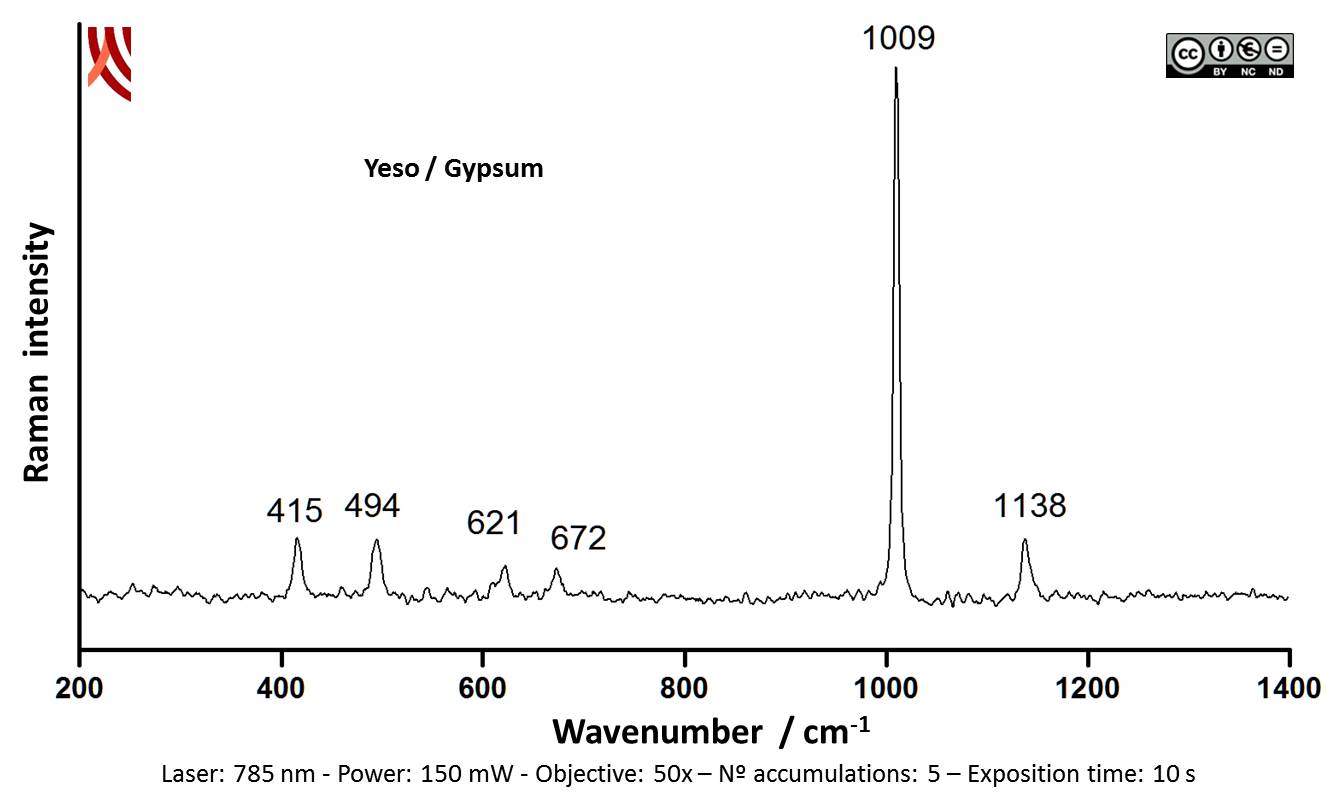 Instituto Universitario de Investigación en Arqueología Ibérica
Instituto Universitario de Investigación en Arqueología Ibérica Creative Commons - Attribution, Non-Commercial, No Derivatives (BY-NC-ND)
Arquiberlab
http://creativecommons.org/licenses/by-nc-nd/3.0/ -
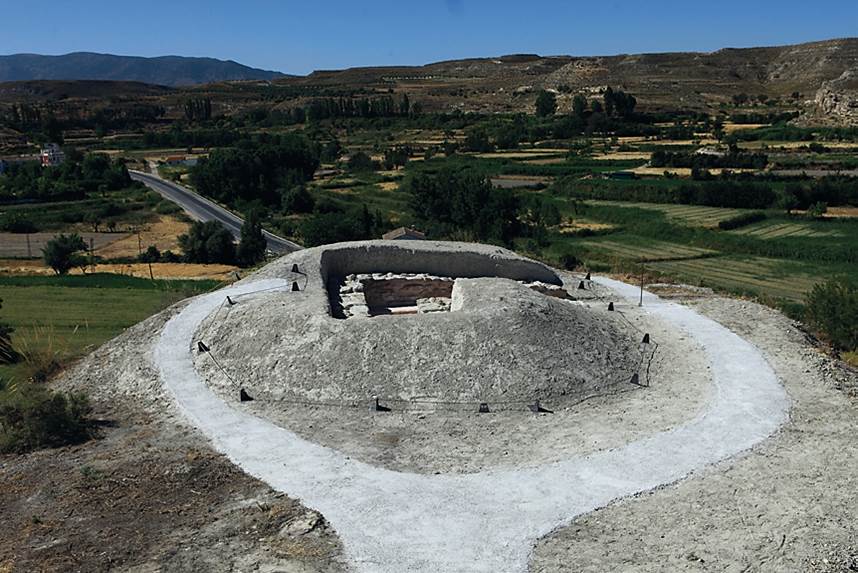
Creative Commons - Attribution, Non-Commercial, No Derivatives (BY-NC-ND)
Arquiberlab
http://creativecommons.org/licenses/by-nc-nd/3.0/
Activities
Archaeometric analysis Physical-chemical analysis Covering. Analysis of decoration.
| |
Spectroscopic analysis Mineral analysis of covering and red decoration. Non destructive. Surface cleaning. Sample pretreatment is not required. Direct measurement. Micro-Raman Spectroscopy (MRS) Renishaw ‘in via’ Reflex Spectrometer coupled with a confocal Leica DM LM microscope (CICT, University of Jaén), equipped with a diode laser (785 nm, 300 mW), and a Peltier-cooled CCD detector, calibrated to the 520.5 cm-1 line of silicon. |

